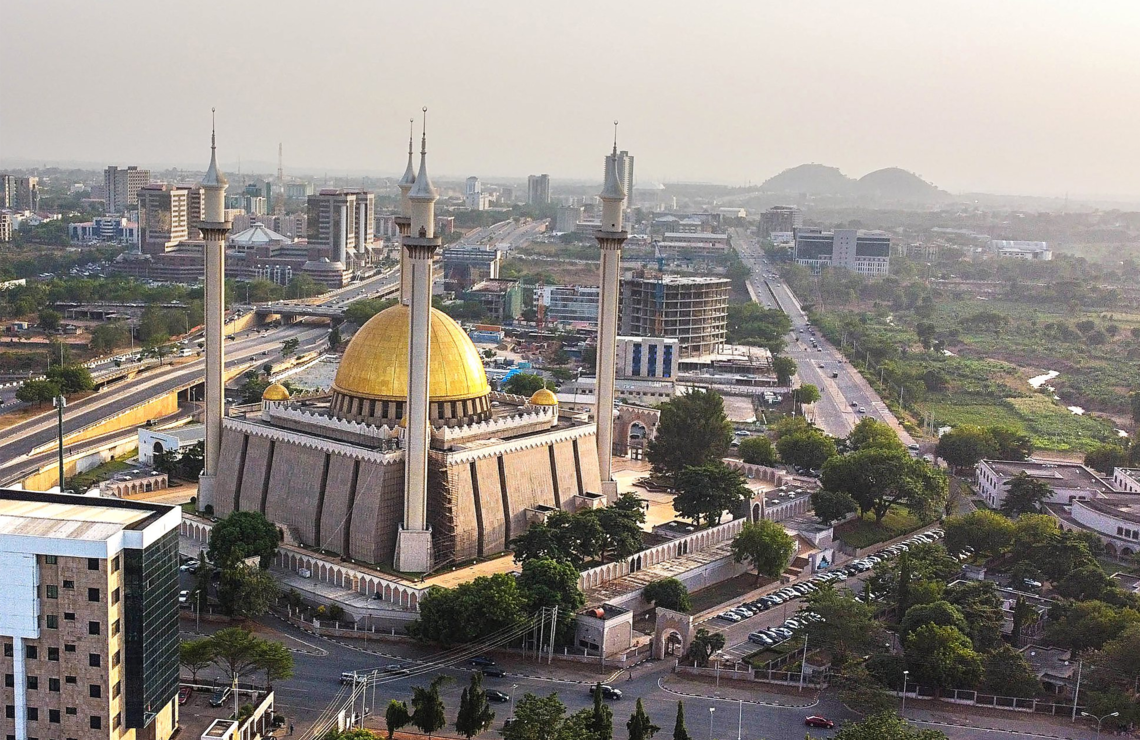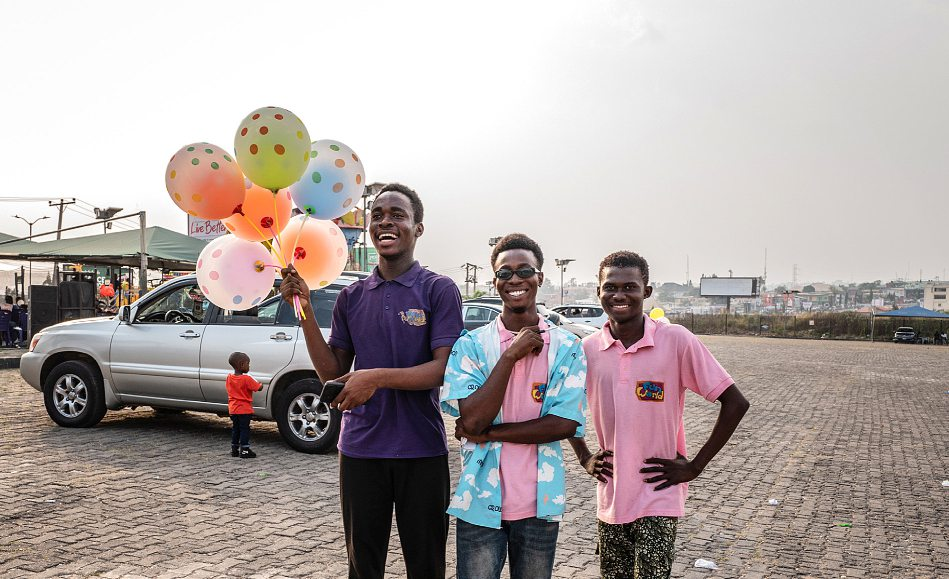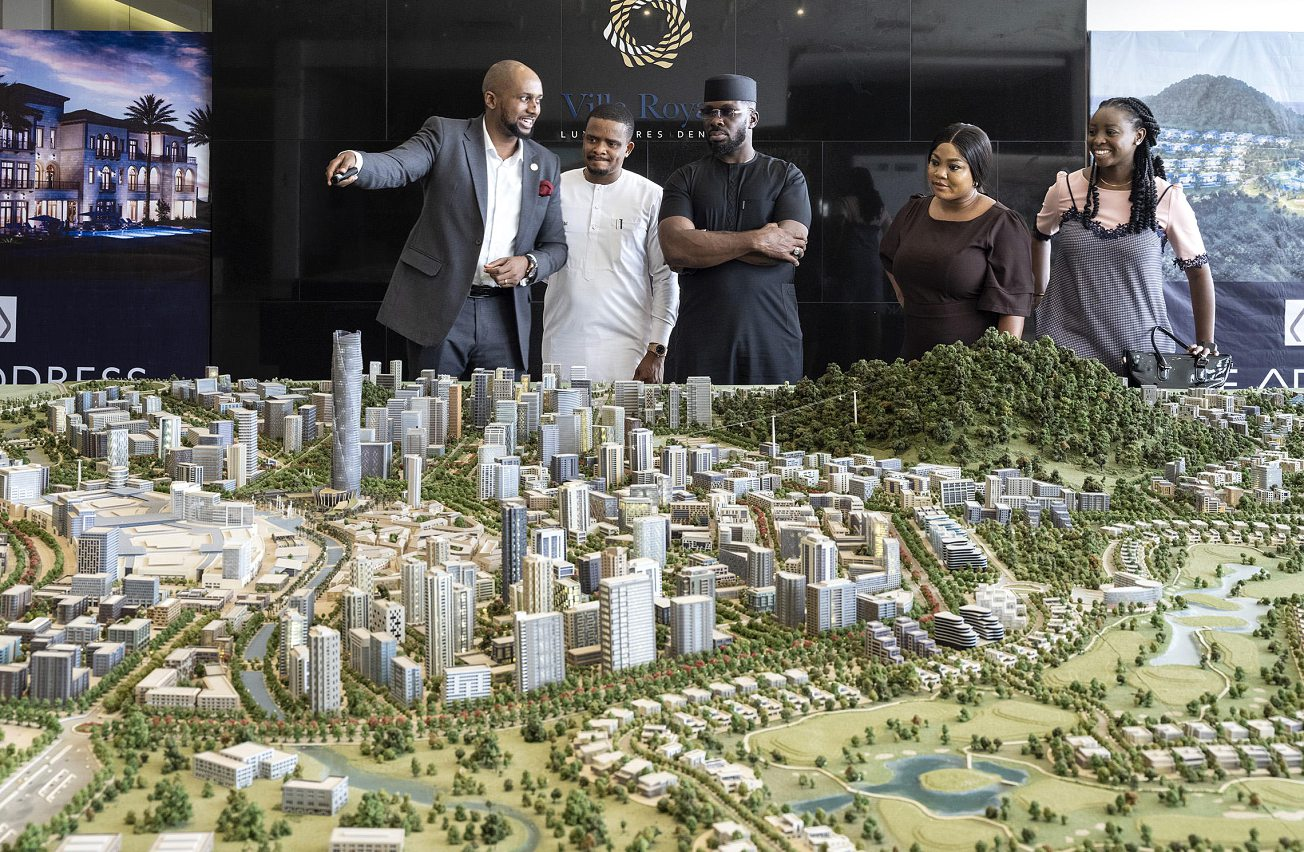
Urgency and ambition
The president faces the challenge of restoring confidence and attracting mass investment to finance development and reduce poverty. He has four years to succeed.
WELCOME TO NIGERIA, HOME TO 224 MILLION PEOPLE 2.80% of the world’s population—plentiful oil, gas, gold, lithium, tin and tantalum reserves, three of Africa’s 10 richest men, including the wealthiest, Aliko Dangote, worth an estimated $13.5 billion, an immense market and the continent’s largest economy by volume, $440 billion in GDP. But inequality is glaring: 133 million citizens live in poverty, including 71 million at the lowest end of the scale. Silver skyscrapers, Hummers and luxury homes bristling with barbed wire and armed guards stand in sharp contrast with shantytowns and squalid hovels. West Africa’s Englishspeaking colossus sits amidst francophone nations whose national budgets are sometimes scarcely larger than that of Lagos State and its namesake city, the sprawling, fascinating and reputedly unmanageable economic capital. On May 29, 2023, former Lagos governor Bola Ahmed Tinubu, 71, was sworn in as one of Nigeria’s few Muslim Yoruba presidents after winning the February 25th election. Following a tough campaign, in early 2023 opposition parties filed several lawsuits challenging the election, the last of which were thrown out by the Supreme Court at the end of October. Mr. Tinubu, a shopkeepers’ son who made a good living in the United States after graduating at the top off his class with an accounting degree and pursuing a career at Deloitte, had dreamed of politics since he was 30. After returning to Nigeria, he was elected senator from West Lagos, but General Sani Abacha’s coup on June 12, 1993 forced him to flee to Cotonou, Benin, where he worked to restore democracy at home. When Abacha died in June 1998, Mr. Tinubu returned to Lagos, where he was elected state governor in 1999 and 2003. A shrewd businessman, he grew even wealthier, although critics nicknamed him the Godfather. But in two four-year terms, Mr. Tinubu proved that Lagos was governable. He cut crime, partly by giving young thugs security jobs, reduced go-slows, improved access to electricity and changed the city’s face. Lagos became safer and more liveable while remaining exciting. He took over the reins of government with the reputation of a man well-versed in the ins-and-outs of power and politics, although much of the population, particularly the young, did not vote for him, some because they feared continuity with Muhammadu Buhari’s previous two disappointing APC terms. As soon as he moved into Aso Rock, the executive mansion in Abuja, Mr. Tinubu set the tone and pushed through courageous reforms. At the risk of sparking riots, he abolished fuel subsidies, which cost the country $10 billion a year, sucking up one-fifth of the federal budget. Trade unions flexed their muscles, but skilful talks managed to calm them down. Mr. Tinubu also gave civil servants bonuses and plans to raise the minimum wage.
A RAFT OF REFORMS

The president released emergency cash payments for the poorest members of the population, as well as €240 million for agriculture, €150 million for SMEs and €90 million for manufacturing. He also devalued the naira, the national currency, with which it was necessary to fill a large bag to pay for dinner in a nice restaurant, and announced the end of multiple exchange rates to align the official one on that of the black market. Economists cheered the measures, which were expected but always put off by his predecessor Buhari, nicknamed Baba Go-slow by his critics. The initiatives also aimed to boost investment, Mr. Tinubu’s battle cry. His government’s roadmap is clear: firstly, attract as many investors as possible to raise the bar and finance development. Secondly, end dependency on oil alone, a sector that has been in steady decline for 10 years due to corruption, looting and the massive siphoning off of barrels. The watchword is diversification by boosting agriculture and mining. The country’s subsoil, exploited before independence for its large reserves of high-grade precious ores, had been abandoned in favour of providential oil. Today, Nigeria is betting on the return of local and foreign companies to invest in the region. Ekperikpe Ekpo, Minister of State for Gas and Petroleum Resources, says work should begin on the 5,700-kilometer-long, $25-billion NigeriaMorocco gas pipeline in 2024. Nigeria’s colossal gas reserves, combined with those of neighbouring countries, should be able to supply Europe at competitive prices in the future. A new market is opening up.
RECLAIMING A LEADERSHIP POSITION

Bola Tinubu hit the ground running. In just six months, he tackled every sector and attended every major global event, including the Summit for a New Global Financing Pact in Paris, the Africa Climate Summit in Nairobi and the G20 in New Delhi. Reputed to be a tireless worker, he keeps his staff in Aso Rock working late into the night and receives ministers and visitors non-stop. In Abuja, the ceaseless movement of impressive black Land Cruisers with tinted windows and round-trip plane trips between the capital and Lagos set the pace. The political and business worlds intermingle. Contracts are signed and laws updated to attract business and secure unsafe areas, notably in the north, where Boko Haram is a problem. In addition to the stated aim of getting the «machine» up and running again, the goal is to proclaim “Nigeria is back!” As head of ECOWAS, Nigeria hit hard from the start, astounding the international community— and showing its willingness to flex its muscles in French-speaking West Africa, including politically—by threatening Niger’s coup leaders with military intervention. For his first visit to a neighbouring country, the president chose Benin on the occasion of its national holiday. But the big country harbours global ambitions. Before leaving for the G20 in New Delhi, the idea of expanding the club’s membership to 21 by admitting Nigeria was raised and is likely to gain ground in the future. Mr. Tinubu has four years to succeed in a country where the population is soaring and the social emergency will be hard to solve in just a few years. Massive investment is a bold move to make the most of its huge potential and finance development. Meanwhile, a page seems to be turning. The pace, ideas and management methods have changed. A new team is in charge. But many Nigerians, whose worries are light-years from the hustle and bustle of Aso Rock, are taking a wait-and-see attitude before allowing themselves to believe in real change.